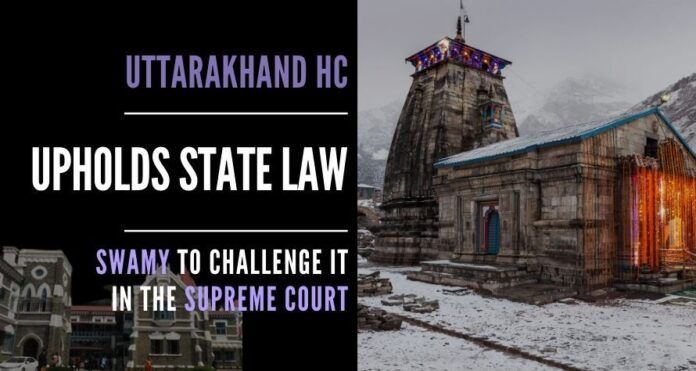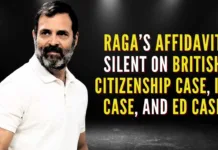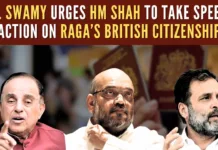
In a big embarrassment to the ongoing “Free Temples from Govt. Control” movement, Uttarakhand High Court on Tuesday ratified the Bharatiya Janata Party (BJP) ruled the State Government’s takeover of 51 temples including Kedarnath and Badrinath temples. Upholding the controversial Char Dham Devasthanam Management Act, Chief Justice Ramesh Ranganathan, and Justice R C Khulbe, dismissed the Public Interest Litigation (PIL) filed by BJP leader Subramanian Swamy and Gangotri Mandir Samiti, challenging the constitutional validity of the Act passed by BJP Government in September 2019. However, the Judges “read down” the Sec 22 of the Act regarding the provisions of the land acquisition by the newly constituted body.
The court ruled that the ownership of the temple properties would vest in Char Dham shrines and power of the Board would be confined only to the administration and management of the properties. The High Court order (Conclusion of the 129 page Order) stated: “Except to the limited extent that the words ‘shall devolve’ (regarding ownership of temple properties) in Section 22 (of Char Dham Devasthanam Management Board Act, 2019) must be read as ‘devolve on the Char Dham and shall be maintained by the Board’, and the words ‘may further acquire land’… shall be read as ‘may further acquire land on behalf of the Char Dham’, the challenge to the validity of the 2019 Act, on the ground that it violates Articles 14, 25, 26 and 31-A of the Constitution of India, must fail … the properties of the Char Dham temples shall continue to vest in it, as declared in Section 4(2) of the 2019 Act … and the power of the Board would thereby be confined only to the administration and management of the properties of the Char Dham Devasthanam…”.
The Uttarakhand Judgment ratifying the provisions of the controversial Char Dham Act in posting IAS officers as Chief Executive Officer to administer temples.
Reacting to the Judgment, Subramanian Swamy said that he will approach the Supreme Court against the High Court Judgment. Many Hindu organizations involved in the free-temples-from-Government movement expressed dissatisfaction with the judgment which failed to recognise the right of Hindu denominations over the temples, while the Act itself recognise this fact. The Judgment justified the need of rejuvenation of temples by the Government’s takeover while modifying the provisions in the Act to limit the power of acquisition of properties.
It is interesting to note that the previous week Supreme Court had scrapped the takeover of Sree Padmanabha Swamy Temple by the Kerala State Government and recognized the right of the royal family, the previous owners. “It is true that, under Section 15 of the Act, the Chief Executive Officer has been conferred power to administer the Char Dham and associated temples mentioned in the Schedule to the Act, and the general supervision and control of these temples have been entrusted to him. What has been entrusted, to the supervision and control of the Chief Executive Officer, are the secular activities associated with these temples, and not its religious affairs. As the subject temples are not administered by any religious denomination, conferment of the power of superintendence and control, of the secular activities of all these temples, on the Chief Executive Officer does not violate Article 26 of the Constitution of India,” said the Uttarakhand Judgment ratifying the provisions of the controversial Char Dham Act in posting IAS officers as Chief Executive Officer to administer temples.
Another interesting point is that the Uttarakhand High Court did not consider the landmark Supreme Court judgment in the Nataraja Temple case on fixing a time limit for takeover and returning back to devotees if there were any malpractices found in the temple administration. In Uttarakhand temples, there was no case of misappropriation, and malpractices were raised.
- Subramanian Swamy approaches Supreme Court on Govt’s modification of 2G Scam Judgment to avoid auction of Satellite Spectrum - April 23, 2024
- Defence Minister Rajnath Singh visits Siachen. Reviews military preparedness - April 22, 2024
- Amit Shah’s shares in the Stock Market almost doubled in the past five years - April 21, 2024











[…] Source: PGurus This entry was posted in INDIA, INDIA – News, LATEST NEWS, LATEST NEWS – News. Bookmark the permalink. […]
[…] खबर को अंग्रेजी में यहाँ […]